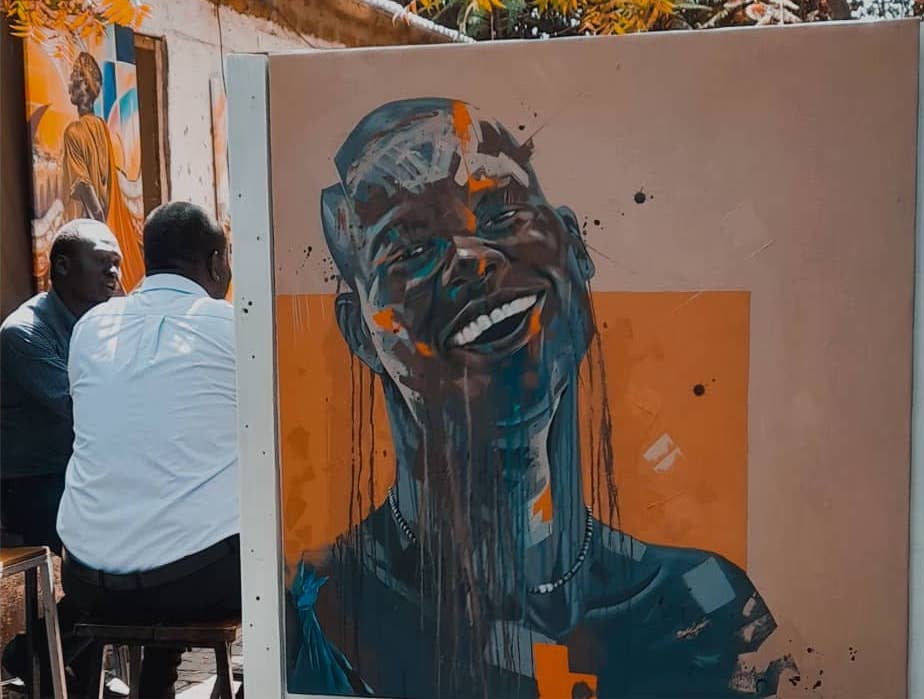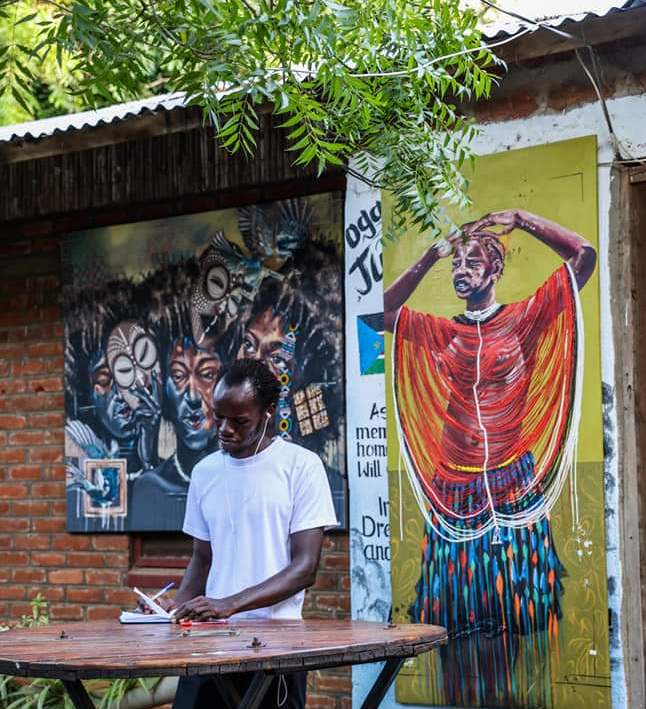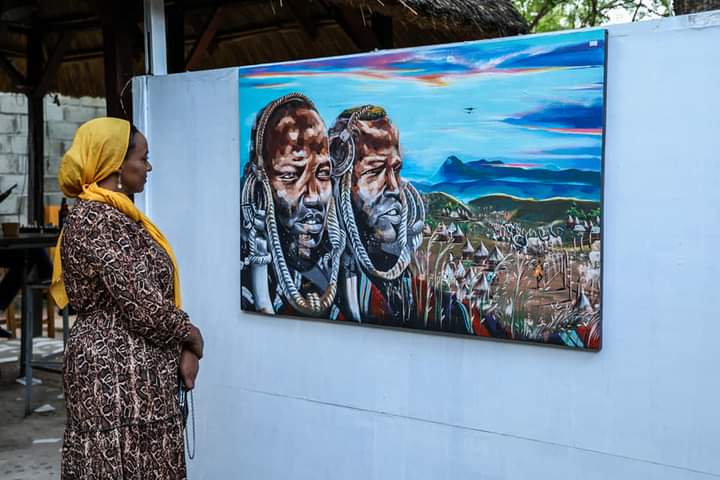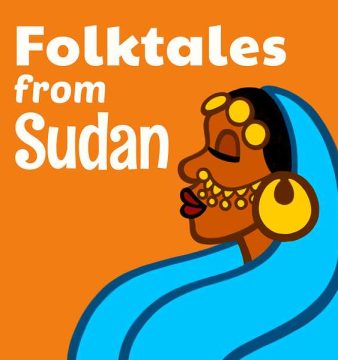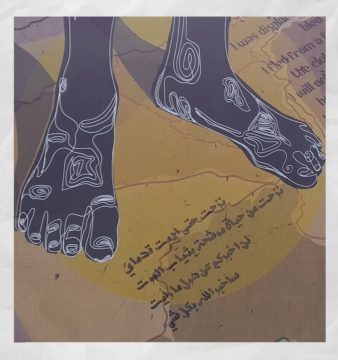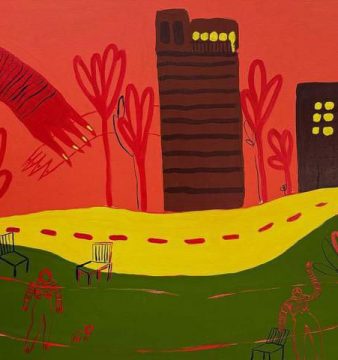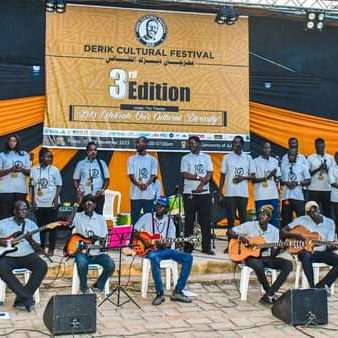Introducing Bonslow Silias: South Sudan’s Rising Artist
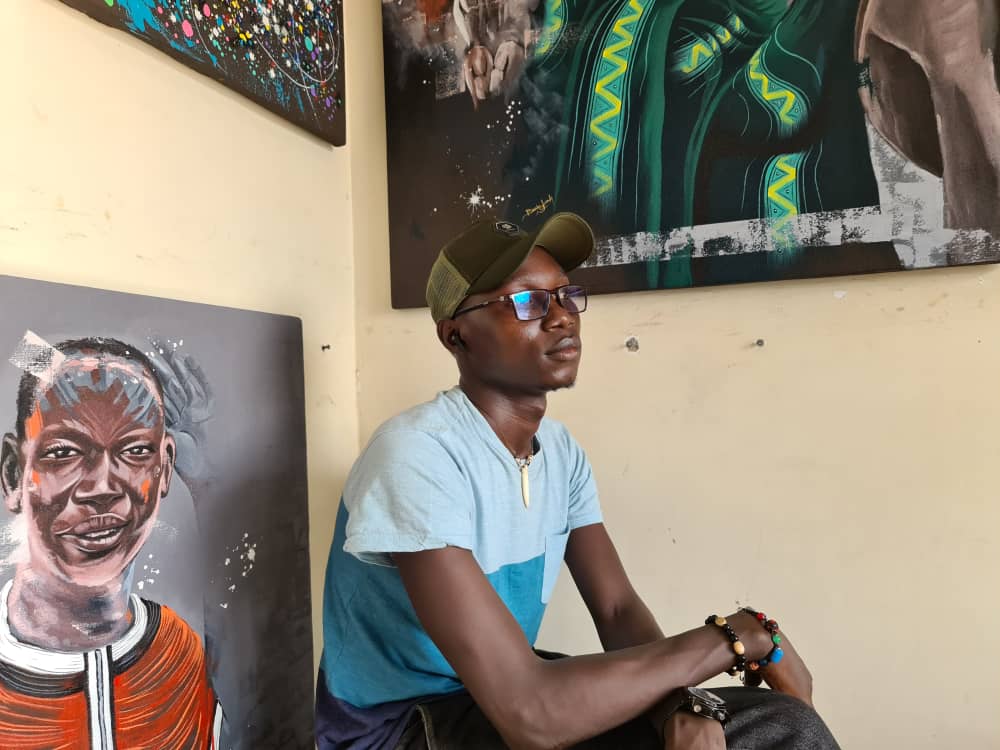
Art is one form of human’s act to express their views and experiences in life. Art can be defined according to what it reflects. In South Sudan, there are many popular local art and artists. However, when we talk about the visual arts, the history is still under progress. Artists specifically painters are now trying to make their way out and leave their fingerprints. Now, many young artists are rewriting the history of art in the country. One of these artists is 28-year-old South Sudanese artist Bonyo Silias Bie, better known as Bonslow Silias, who recently returned to South Sudan from Uganda to explore and help advance the country’s art scene.
His most recent solo exhibition, Life Above All, took place in Juba, South Sudan in September 2023 at the popular art and culture space, The Baobab House. Silias presented a new collection of his portraits, bringing together local culture and modern life. Silias is inspired by the daily life activity of the people surrounding him, he paints the untold suffering and happiness behind those silent faces walking on the street.
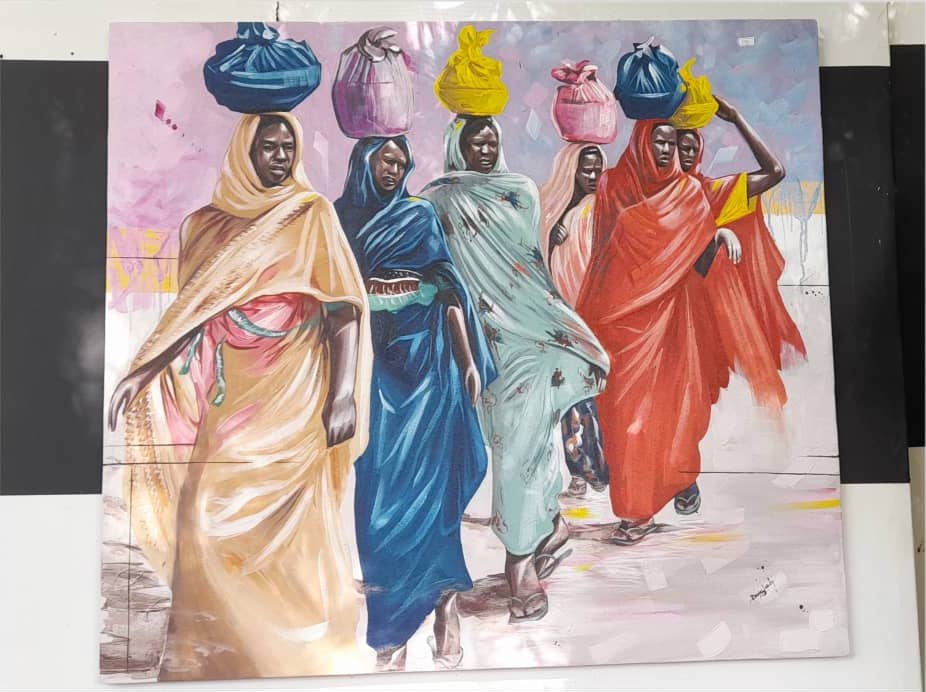
In addition, Silias’ paintings are mostly portraits of women, depicting the diverse features of African women, whether modern and traditional, in the finest dresses and looks. The women in his paintings are portrayed as strong, ambitious, bold and naturally beautiful. ‘I think women define beauty, so I put beauty first then the message,’ said Silias. In one of his paintings, there are a group of women carrying food over their head, wearing the traditional Sudanese dress toub. Although it is not the cultural dress for South Sudanese women – they wear the Lawa – it has become familiar and part of the culture in South Sudan as an act of interculturalism. Silias was fascinated by the everyday view of women wearing toub hitting custom market. ‘I lived most of my life in Uganda and am finding this dressing code amazing so I wanted to put it in my paintings. I had an idea to produce additional seven paintings like that,’ he said.
According to Silias, colours play a fundamental role in the life of the paint. The painter enjoys painting portraits with acrylic on canvas. He likes to use the earth colours – blue, green, brown and red. His works are full of life and passion. He always tries to reflect his emotions and thoughts in his paintings. He let his paintings speaks louder than his own voice. ‘I am bolder when I am painting, I don’t wear colourful clothes, so I pour it out on my paint,’ he said. Art and creativity is every part of Silias’ life. On the days Silias is not working in his studio, he would be decorating somewhere else. ‘I am just focusing on my painting is a daily thing right now if I am not painting on the canvas I will be painting on the walls or doing internal designing,’ he said.
Silias was born in 1995 in the Maaji refugee camp in the Adjumani District in Uganda. Later, he and his whole family relocated to Koboko District. ‘It was tough to grow up in refugees camps although I was young, but we were moving from village to village district to district until we settled in Koboko,’ he said.
Silias started painting at an early age. He recalls a memory from when he was younger, drawing on the walls of his house, which his mother took a long time decorating and she then became really upset with him. Silias received his education in Uganda. He first attended Ombaci Self-Help School and St Charles Lwanga College in Koboko. ‘In the school, I remember the teachers used to call me to draw things like maps, organs and so on,’ he said. He completed high school at Merryland High School in Entebbe. He later received a bachelor’s degree in commercial art and design from Nkumba University in Uganda’s capital city, Kampala. ‘Uganda taught me everything to do with life it was wonderful, good and bad a little but for real it was nice can’t lie because that’s where I met my mentors,’ he said.
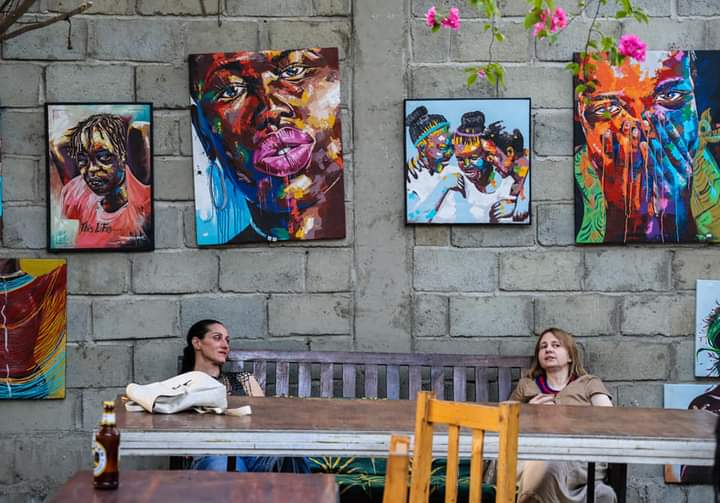
According to Silias, the culture of buying paintings and other forms of art in South Sudan is uncommon. He along with many other artists in South Sudan struggle to make an income from exhibitions. People come to exhibitions to see art, but only a few will show a real interest in buying one. In Silias’ experience, mostly foreigners show serious interest and intention in buying art. However, that is not the case in Uganda where Silias first began working as an artist and attending exhibitions. Despite the fact that he was successful as an artist and made a sustainable living from his artwork in Entebbe, Silias chose to return to his homeland in 2020 to start from the scratch. It was necessary for Silias to represent his country. As soon as he returned, he participated in his first art exhibition in South Sudan with other artists. ‘It is hard though. It’s like a real struggle over here. Anyway everywhere, artists struggle because that’s life. It is not smooth. South Sudan, in regards to art, is still a young country. There are very few artists. I thought of staying in Uganda and do my things in Uganda, but then I chose to come here to represent my country, bring my country up and show our heritage to the world,’ he said.
Although he has just begun establishing himself in South Sudan, Silias is currently working on his next project and sees himself ready for the outside world while still representing South Sudan. He hopes his art will be seen abroad and has begun to search for galleries in other countries to showcase his artwork to audiences outside of South Sudan.
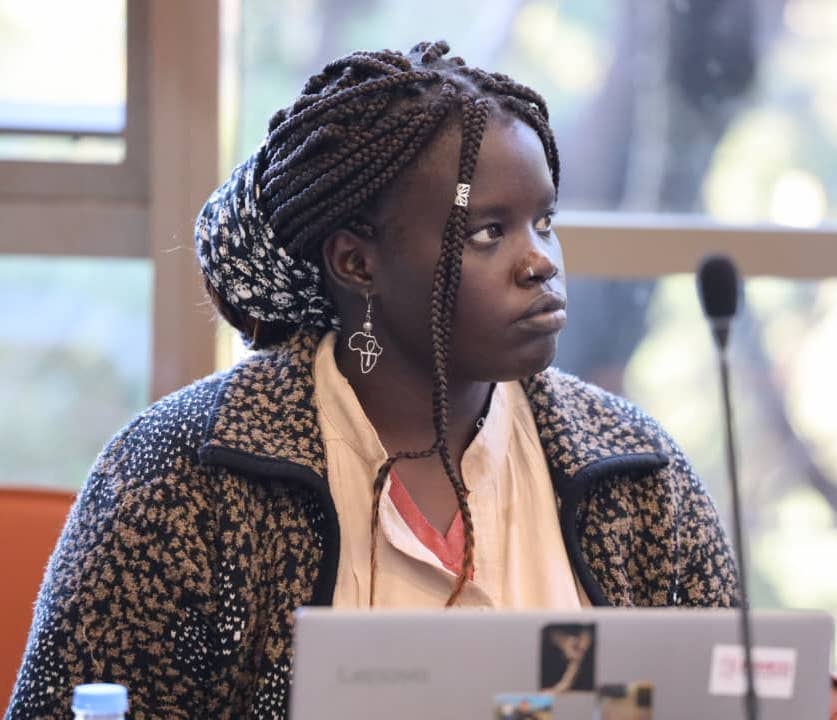
Dominica Amet Joseph Marco is a 26-year-old South Sudanese writer, freelance journalist and feminist/social activist who graduated from the faculty of law from the University of Bahri in 2018. She is one of many who had to flee war in Sudan to finally come and live in her homeland South Sudan. She has written and published articles, stories and poems since 2017. She has worked with and published articles in Aka’bar Alwatan Newspaper in Sudan, Almugif Newspaper in South Sudan, and several other Arabic websites.

